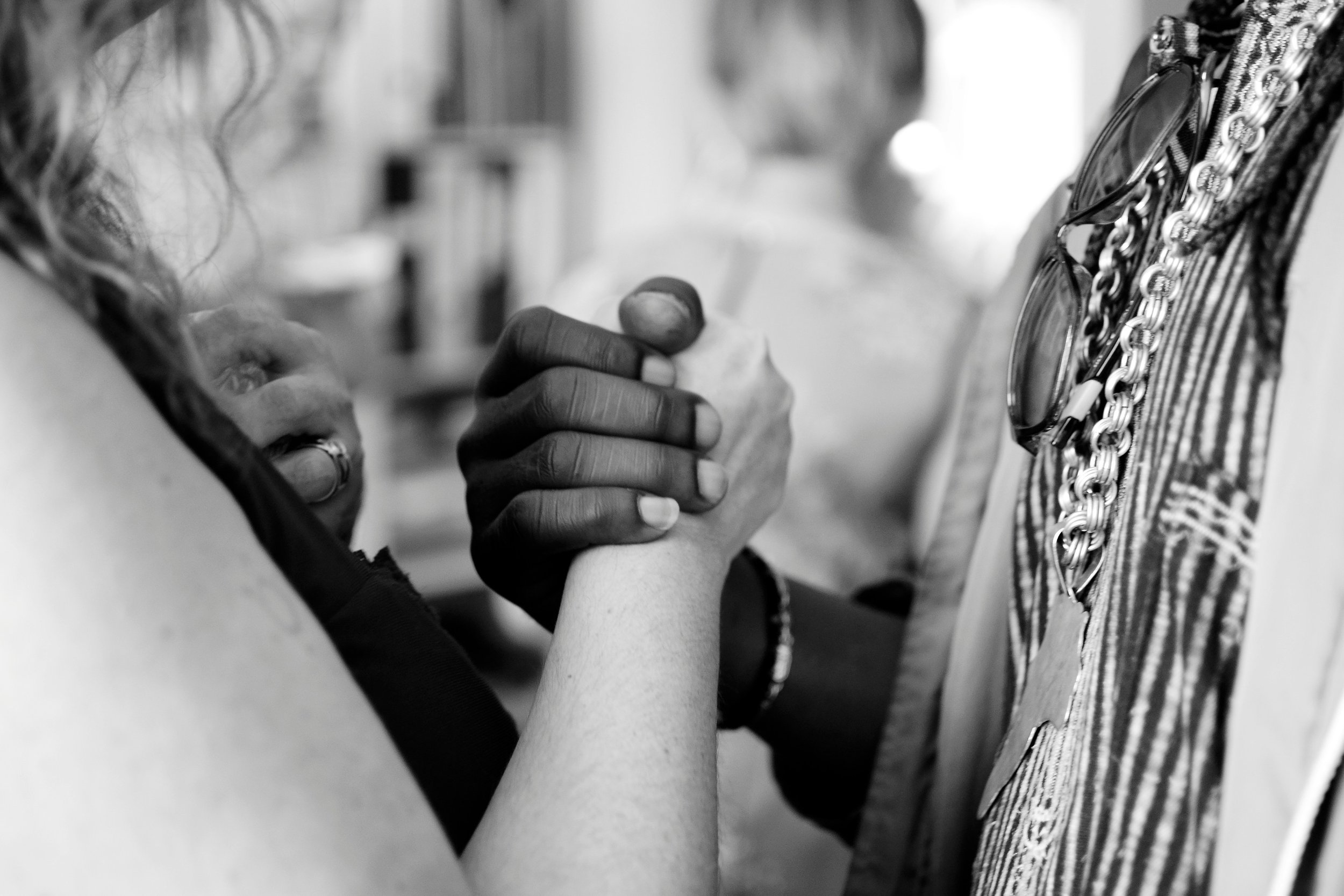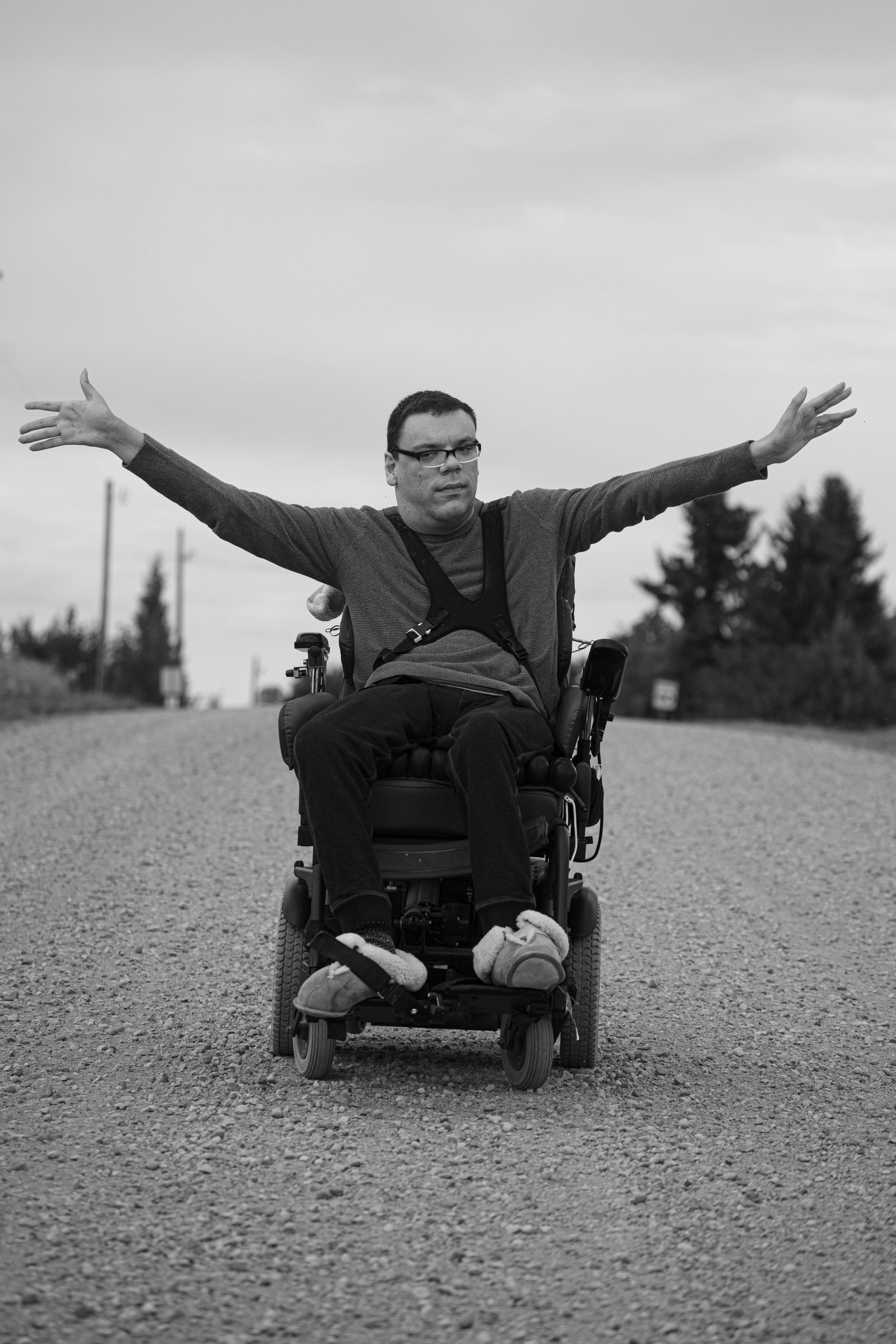
Why Seeing a Therapist Early in your new relationship can Be a Game-Changer
Starting a committed relationship is such an exciting time, full of dreams about the future. Whether you’re a cisgender heterosexual couple or a polyamorous queer triad, building a strong foundation from the beginning can make a huge difference in how your relationship unfolds. One often overlooked tool in this process is therapy. It’s not just for fixing problems but can be incredibly useful when things are going well, too. Let’s dive into how seeking therapy early on can benefit both traditional and non-traditional relationships, and what potential challenges you might face.

The Need for Collective Compassion: Reimagining Our Future Together
Self-compassion has become such a buzzword that it's easy to think that being kind toward ourselves is only a purely personal journey. We all talk about how self-care and self-love are the keys to happiness, and while these practices are important, they might not be enough on their own to feel relief. The truth is that to truly care for ourselves, we must look at how compassionate we are toward each other.

On Violence: An essay on the enduring challenge
Violence continues to permeate societies worldwide, leaving indelible marks on all of us. Its persistence has made it a central focus for scholars across various disciplines, particularly psychology and sociology, alongside news outlets and social media.

Rethinking Disability Through the Lens of Ableism
Disability is often viewed through a narrow lens that focuses primarily on medical and social understandings. However, disability is multifaceted and deeply entwined with political dimensions that influence how society perceives and addresses it. To better understand this complex landscape, it is essential for us to understand our ableism and explore how disability intersects with politics in order to be better allies.

Men should talk about stuff too: Breaking the stigma
It’s surprising to believe that men and mental health is still a topic shrouded in stigma and misconceptions. Societal expectations and traditional masculine norms often discourage men from openly discussing their feelings and mental health challenges which is leading to dire consequences. The statistics regarding men's mental health paint a troubling picture:

You Don’t Look Sick: Living with an Invisible Disability
When I first became aware of disabilities, images of wheelchairs, white canes, and sign language came to mind. I never thought of invisible disabilities until I went to graduate school for clinical social work. Mental or physical illnesses that you can’t see which are just as impactful on people’s lives as visible disabilities. Learning about these was important knowledge to obtain. I never thought that what I was learning was going to impact me so immediately and directly. Until it was, I’m a therapist and now I have an invisible disability.

The Perils of Summer Love: Love Bombing & Gaslighting
I’ve been thinking about what it means to listen. Listening is a form of active engagement which I think is different from hearing. Hearing is physiological. Hearing is a passive and automatic sensory process. If we have the privilege to hear, we don’t control it. Listening is an active and intentional process. It involves paying conscious attention to the sounds we hear, interpreting them, and understanding their meaning. Listening requires focus, cognitive engagement, and often emotional involvement. It's a deliberate action that goes beyond mere auditory perception to include processing and comprehension. We don’t have to have the physiological function to hear in order to listen.

How Do You Listen?
I’ve been thinking about what it means to listen. Listening is a form of active engagement which I think is different from hearing. Hearing is physiological. Hearing is a passive and automatic sensory process. If we have the privilege to hear, we don’t control it. Listening is an active and intentional process. It involves paying conscious attention to the sounds we hear, interpreting them, and understanding their meaning. Listening requires focus, cognitive engagement, and often emotional involvement. It's a deliberate action that goes beyond mere auditory perception to include processing and comprehension. We don’t have to have the physiological function to hear in order to listen.

Are you using your child to get back at your ex? The Impact of Parental Alienation
Constance and Damian have recently gone through a bitter divorce. Constance feels deeply hurt by Damian's actions during their marriage, and though he wants to stay involved in their children's lives, Damian does not want to be married anymore. This is a blow to Constance, she thought things were going ok despite the challenges of raising two and the economic stress they’ve been under. Constance can't seem to move past her anger. She starts making it difficult for Damian to see the kids—canceling visits at the last minute, ignoring his calls, and speaking negatively about him in front of their children. As weeks turn into months, Damien notices that his son, Jake is becoming more distant, even protective of Constance. His younger daughter, Grace, seems confused. Constance’s unresolved anger is inadvertently causing emotional harm to their kids.

It’s Self-Care Month (designated by the World Health Organization in 2019).
Thanks WHO! Did you know the concept of self-care in the United States originated as a medical term in the 1950s for long term care patients? Later the ‘self care’ concept was adopted by activist groups during the civil rights movement as a way to manage the wear and tear on one’s body when on the front lines. BUT, if we take a moment and decenter western history around the concept, we can see that indigenous forepeople have been attuned to the needs for time for holistically caring for the body (and the planet, for that matter) as a collective responsibility for a community long before the concept was named and, now talked about by influencers. ( I mean, I remember my grandma talking about “resting her eyes”... can anyone else think of terms or phrases from elders that talked about ideas of rest?) Anyway…

Bridging pride and heritage: managing your mental health in the LGBTQ+ and AANHPI Community
This current time between the months of May and June in the U.S. can be especially challenging for LGBTQ+ Asian American and Native Hawaiian/Pacific Islanders (AANHPIs) as Heritage Month and Pride Month observances are back-to-back. While the intersection of these observances can be a unique time for us to celebrate both identities, it can also bring up the struggles that come with belonging to communities that often conflict or contradict one another.

Summer is Sexy: Let’s Talk About Safer Sex and Consent Without Shame - 5 Things to Think About
Summer 2024 is about to be here, and with it comes sun-soaked days, late-night adventures, and the sizzling promise of romance and connection of all kinds. Whether you're getting that sexy drip together for smashtime or getting all Bridgeton about it …preparing to rekindle an old flame. It’s time to Let’s Get It On (for you old timers), make that WAP happen ... .or just be in the heat of this undeniably sexy summer. But with all the excitement, it’s essential to keep our conversating (it’s in the Oxford Dictionary!) or conversations around sex, consent, and safety both proactive and shame-free.

A Letter to Parents and Caregivers on Supporting Your LGBTQIA+ Child/ren: A Journey of Understanding and Love
You are taking a crucial step towards fostering a nurturing environment where the child/ren can thrive authentically. What you are embarking on is not only confidence-boosting but life-saving. While society might have you focus on negative stereotypes and overload you with statistics, over the course of a few blog posts, I’d like to focus on some core elements for parents and caregivers so that you can focus on building support, and understanding along with your unconditional love. We need more healthy, honest and happy relationships within family units.

Navigating Depression in a Chaotic World
In a world fraught with challenges, it's normal to feel overwhelmed, anxious, or depressed. From distressing news headlines to personal struggles, the weight of societal and individual burdens can feel insurmountable. These external stressors can trigger situational depression, a common reaction to specific events or circumstances. However, for some, these feelings persist, evolving into long-term depression that requires professional intervention.

Thriving Amidst the Chaos? Burnout in the Age of Late-Stage Capitalism
You’ve been here a long time. You might turn to doom scrollingl through our social media feeds to capture the news of the day with a dash of levity with a baby or cat video but you know you have to get to work. You tell yourself you’re fortunate to have a job, even if the job might not be enough to sustain, or it’s just enough but not fulfilling. You desire to do something different or want to find a way to give back to your communities. You tell yourself that these are ‘first-world’ problems but know deep down you have to pivot - make a change. It’s an oxygen mask on yourself moment in the hopes of something greater.

Deciding When to Seek Help from a Sex Therapist: Let’s Talk About It
Navigating sexual issues can be challenging, as a couple’s therapist I’ve worked with people who have had challenges deepening their intimacy within their relationship. Seeking help from a therapist trained in the nuances of sex can offer valuable support and guidance. Even if you’re not in a relationship, issues of intimacy, sexual expression or trauma might be impacting how you feel about yourself as you’re trying to get close to others.

Why is “Settling” Such a Charged Word?
“Settling” often comes with a negative connotation. When I googled it, one of the definitions I found was to “accept or agree to (something that one considers to be less than satisfactory)”. We assume that by settling, we’re taking a partner who’s “less than satisfactory”, but where does this notion come from in a romantic sense?

Being with Suffering
The news is awful. There’s no way to sugar coat it. You can’t ignore it (and empaths, really can’t.) You can’t unsee the things you’ve seen and some feel like it’s their duty to be a constant witness. Small talk might be getting harder for you; and you might find irritation at those who seem like they're always ‘happy’ or are apolitical about what’s happening around them. Platitudes feel lame and, at best, don't really seem appropriate to the times.

A Quick Guide to Consensual Non-Monogamy’s Many Different Relationship Structures
Marriage, and monogamous relationships, may have been the American societal norm for decades, but that tide seems to be shifting. In a national survey conducted by data analytics firm YouGov in 2020, only 56 percent of people cited complete monogamy as their ideal relationship style. An estimated 23 percent of respondents said their relationships were already non-monogamous, echoing 2017 research published in the Journal of Sex & Marital Therapy, which found that more than one in five single Americans in their study had tried consensual non-monogamy. As Esther Perel points out in her book, The State of Affairs, “monogamy used to mean one person for life. Now, monogamy means one person at a time.”

The Road to Forgiveness: A Journey Paved with Grace
Within the fabric of our lives, forgiveness intertwines a delicate thread, binding wounds and healing scars. The road to forgiveness is not an easy one; it is fraught with pain, resentment, and sometimes, an overwhelming sense of injustice. Yet, as you traverse this challenging path, you'll find that forgiveness is not just a destination but a transformative journey, guided by the profound force of grace. Here are some ways to approach it:
